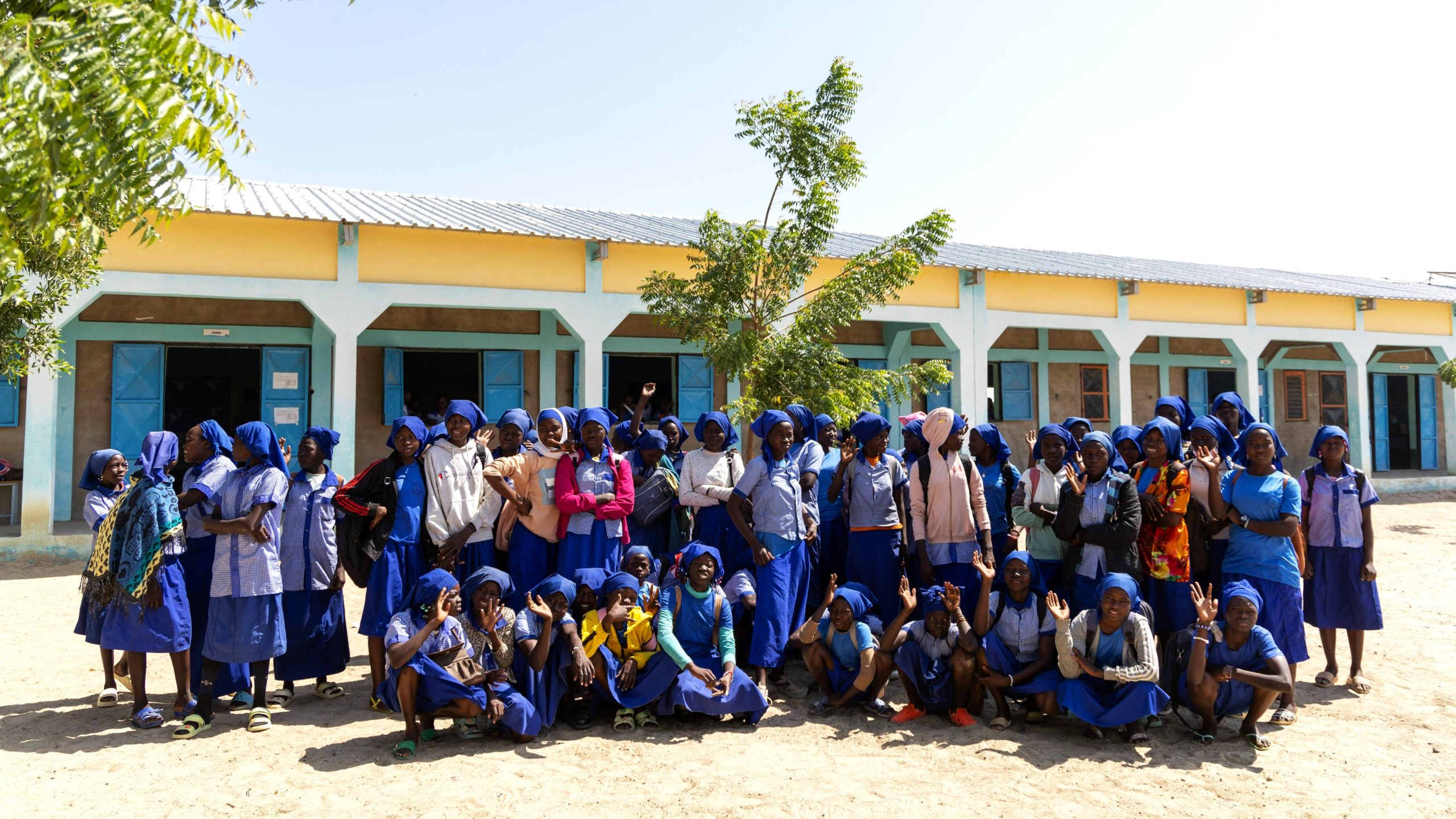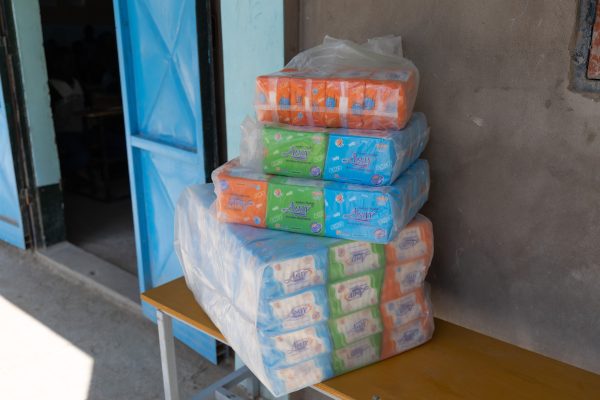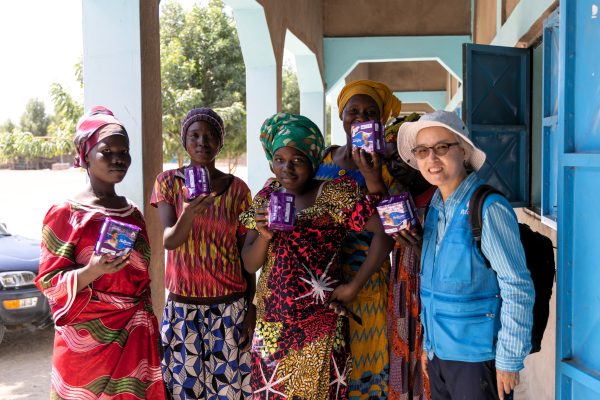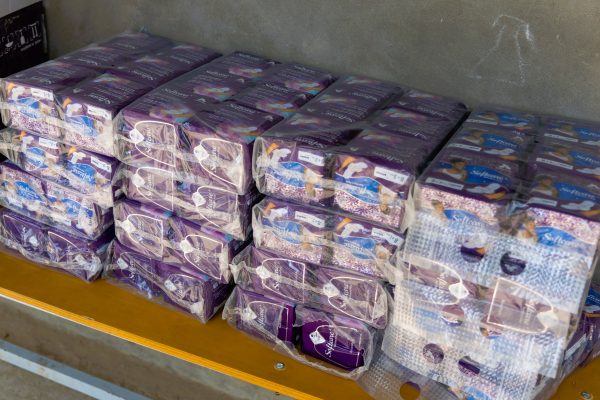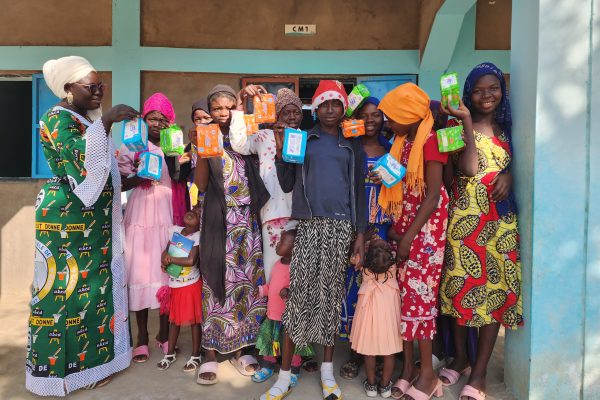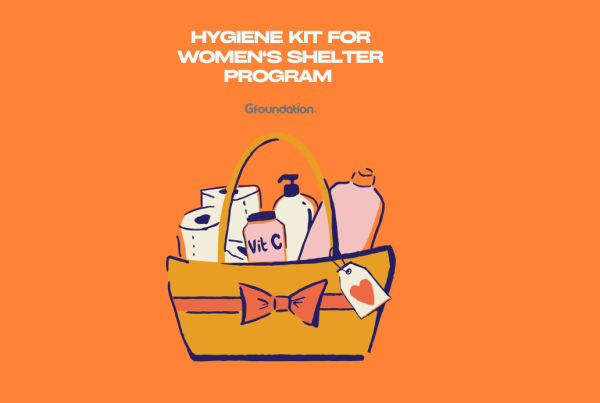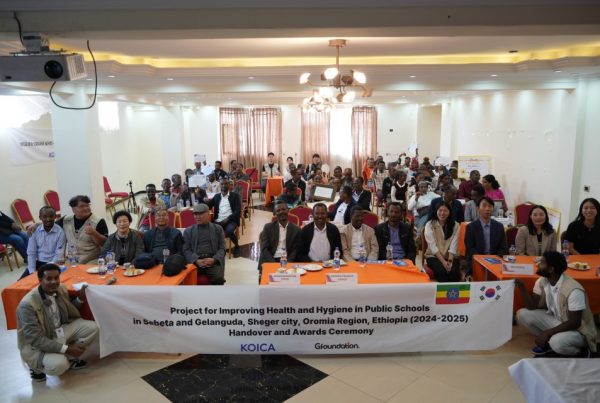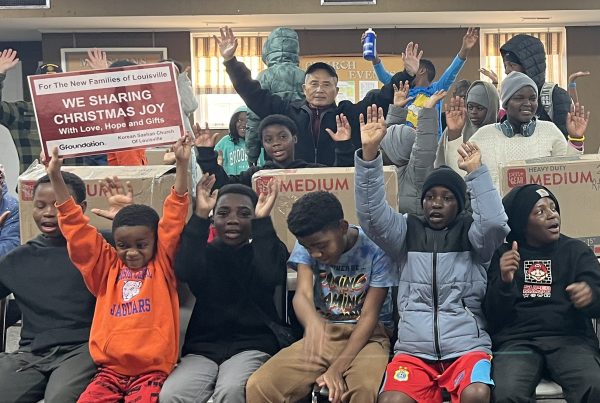Program Overview
- Program Duration: October 2024 – April 2025
- Location: Schools in Chad and The Gambia
- Reached: 390 girls and women in school (300 from Chad, 90 from The Gambia)
- Distributed: 1,130 bundles of sanitary pads
In late 2024, we launched a pilot initiative to address the pressing need for menstrual hygiene support among adolescent girls in Africa. Initially aiming to reach 150 beneficiaries, the project ultimately supported 390 children and adolescents—more than double the original goal.
By providing access to menstrual products, we helped girls manage their periods with dignity, stay in school consistently, and regain confidence in their daily lives. This project served as a reminder that small-scale interventions, when rooted in genuine need and community partnership, can lead to meaningful, measurable impact. In this post, we will report on how your generous gifts have contributed to our mission in Chad.
Part 1: Chad

Girls in Chad after receiving sanitary pads © Gfoundation 2025
Safer Periods, Healthier Lives
Before the intervention, many girls in rural areas relied on unhygienic materials such as rags or scraps of cloth to manage their menstruation. These unsafe practices are not only physically uncomfortable but also highly vulnerable to risks of infection. Our provision of sanitary pads enabled girls to manage their periods safely and hygienically, improving their physical health and overall sense of well-being.
No More Missed School Days
In Chad, the lack of menstrual products contributed to frequent school absences. For many girls, this meant falling behind in their studies or dropping out entirely. After receiving menstrual kits, beneficiaries reported a notable improvement in their ability to attend school regularly—even during their menstrual cycle—helping them stay on track academically and socially.
© Gfoundation 2025
Remaining Uncertainty
One of the main challenges was the overwhelming demand. At Église Évangélique Missionnaire au Tchad (EEMT), our partner church in Chad, we reached far more girls and women than expected. While many were excited to receive the kits, some shared concerns about running out and chose to ration their supplies, uncertain whether the program would continue.
Zizel, 15, lives with her aunt due to financial hardship. Without access to menstrual products, she used layered cloth and struggled to manage her period with limited clean water—facing discomfort and the risk of infection. Today, with support from our program, Zizel can manage her period safely and confidently.
© Gfoundation 2025
Steps for Sustainability
The success of this project confirms that menstrual hygiene support is not only essential, but transformative. Girls, families, and educators alike expressed a strong desire for the program to continue and expand. Some also requested additional items such as undergarments—further highlighting the broader needs tied to personal hygiene and well-being.
Going forward, we aim to transition from one-time interventions to sustainable, community-driven solutions. By building partnerships, engaging local stakeholders, and securing ongoing funding, we hope to ensure that menstrual health becomes a guaranteed right—not a temporary relief.



